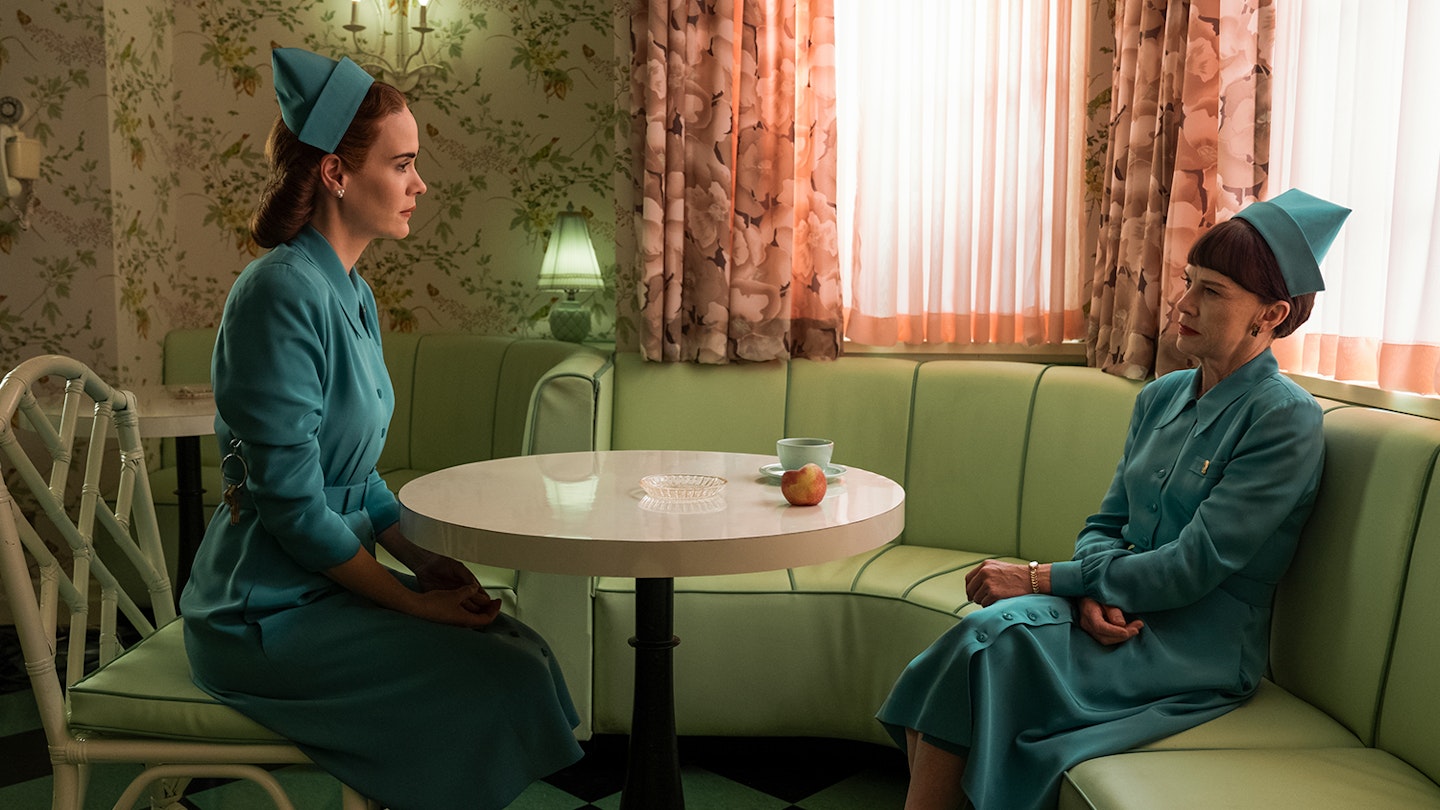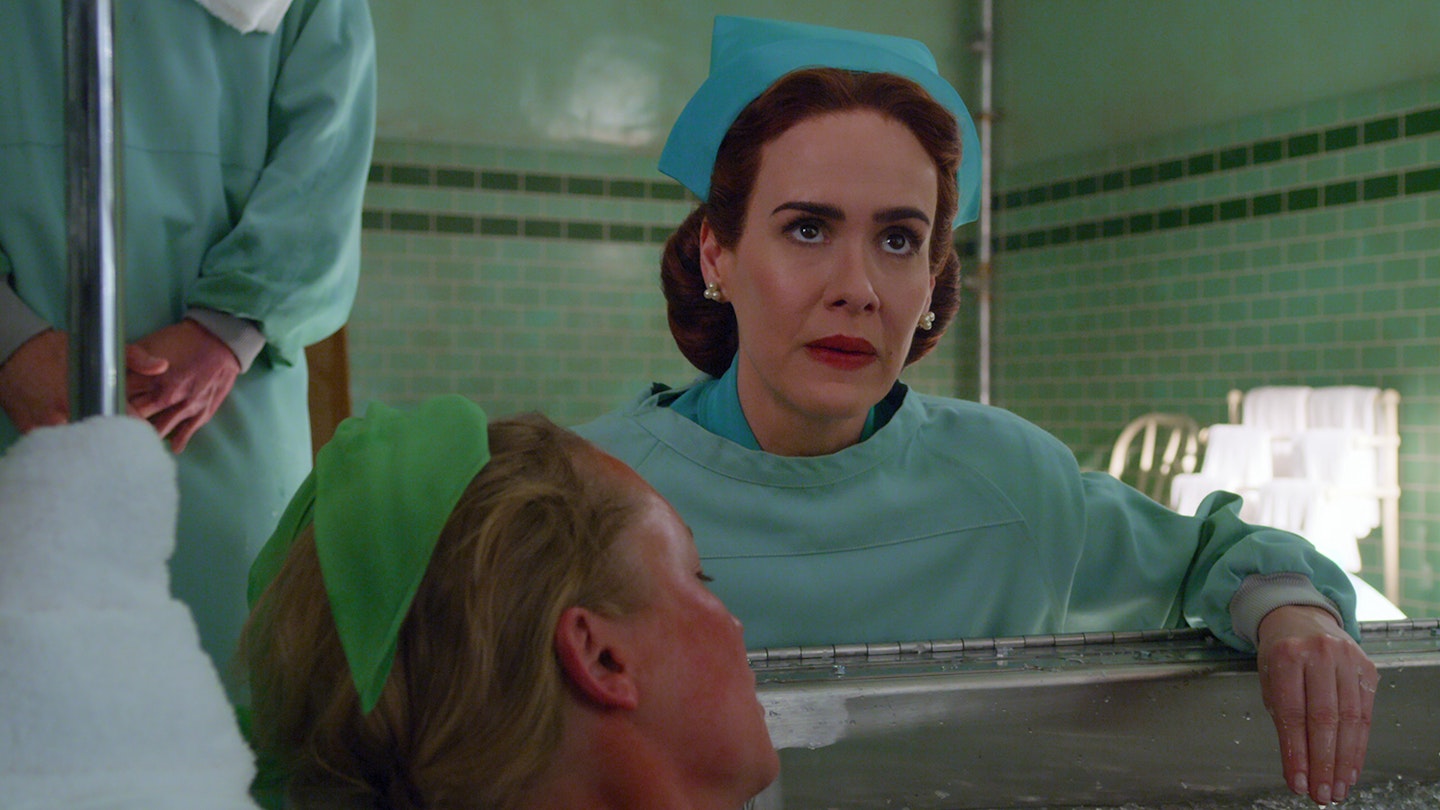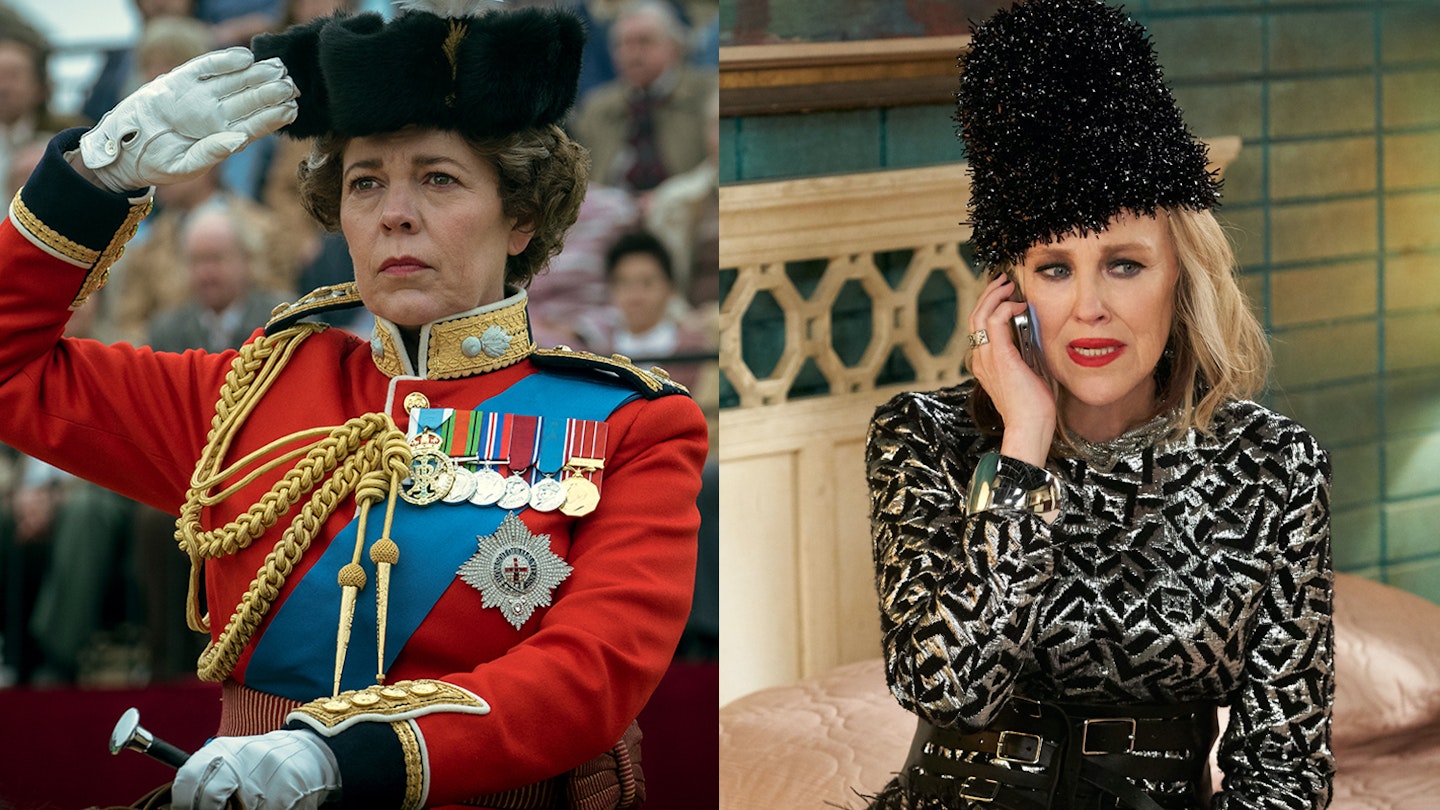Ryan Murphy’s latest show has been billed as the untold history of One Flew Over The Cuckoo’s Nest’s Nurse Ratched, unforgettably brought to life by Louise Fletcher in Milos Forman’s 1975 multiple-Oscar-winning film. Fletcher’s power lay in chilling restraint, a smiling passivity that hid a lust for absolute control. But restraint and passivity are not the words that come to mind here; the series starts off bloody and only gets more violent.

Ratched’s backstory of hard times and abuse for Sarah Paulson’s Mildred Ratched means that all five of the American Film Institute’s top villains of the 20th century have now been given a sympathetic prequel. But this has so little connective tissue to its inspiration that it’s best viewed as an entirely separate entity. Instead of Haskell Wexler’s bleak cinematography, this looks more like Russell Metty’s work for Douglas Sirk, teal and blood-red with a little mustard on top; instead of that dreary institutional grey, we’re in a spa-turned-luxury-asylum, sparkling and shiny. It’s undeniably gorgeous, and of course this is a different era, but it’s a visually jarring difference that never helps sell this as the same Nurse Ratched.
Ratched can’t help but be watchable with a cast this overqualified and design this sumptuous.
Thematically there’s no overlap either. If Murphy laudably addresses the appalling treatment of LGBTQ+ people by mid-century society, he also uses offensive stereotypes of mental illness for shock value, most notably as regards Sophie Okonedo’s Charlotte Wells. Then again, this show betrays no genuine interest in mental illness, just in the power struggles between Ratched and Judy Greer’s Nurse Bucket, or between hospital head Dr Hanover (Jon Jon Briones) and California Governor George Wilburn (Vincent d’Onofrio) and his right-hand woman, Gwendolyn Briggs (Cynthia Nixon).
Pyschiatric patients are rarely glamorous, so Murphy and team focus instead on millionaire Leonore Osgood (Sharon Stone) and shady PI Charles Wainwright (Corey Stoll). Surrounded by all these huge personalities screaming for attention, Ratched is not a big fish in a small pond, but someone all too aware of her own vulnerabilities, and capable of empathy, which makes her feel not so much like a forerunner of Fletcher than the antithesis of her. Paulson’s performance is as reliable as always, sometimes even approaching the infuriating composure that Fletcher showed, but she’s pulled in ten different directions by the script.
Ratched can’t help but be watchable with a cast this overqualified and design this sumptuous. But it feels like the same old Murphy soap opera we’ve seen before, all blood and thunder and sex and undercooked love affairs, and with almost none of the introspection that might explain where a Ratched comes from. There are more gory deaths than episodes, and that feels wrong. The real Ratched barely needed physical violence. Her presence was her weapon.

